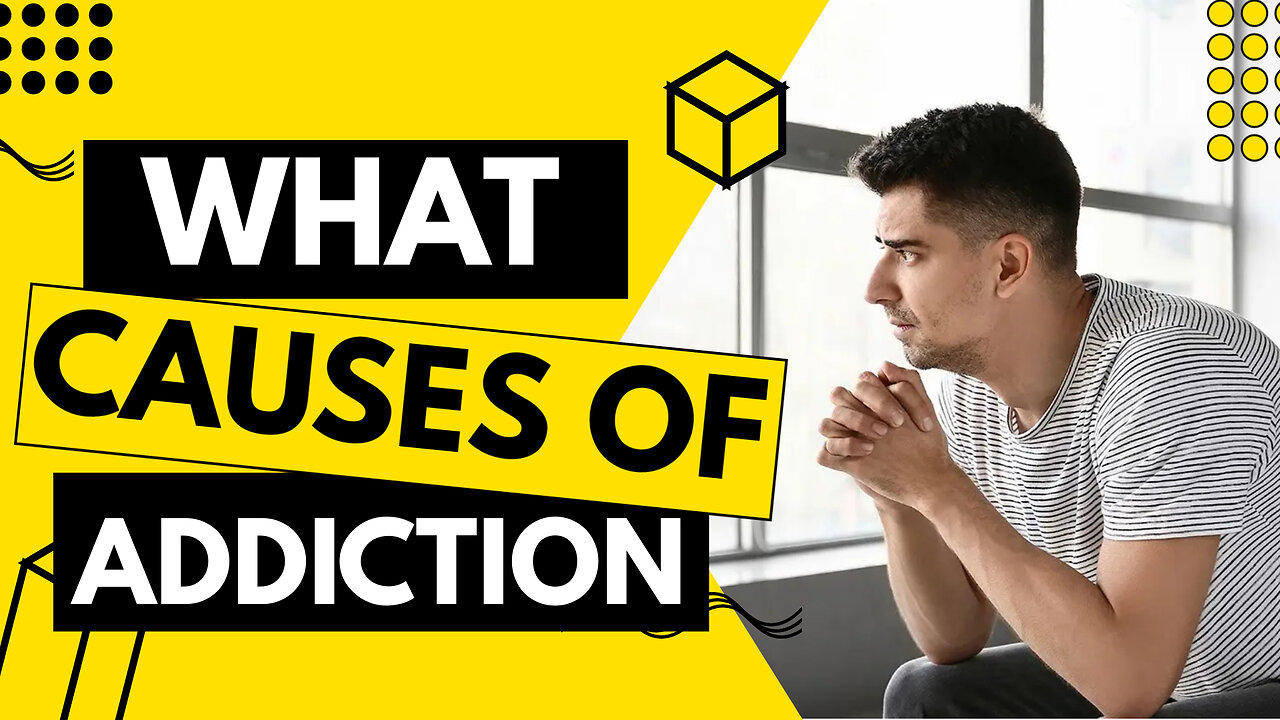Premium Only Content

What Causes Addiction - The Science of Addiction
In the realm of neuroscience, psychology, and public health, addiction remains a formidable challenge. From substance abuse to compulsive behaviors, addiction can exert a powerful grip on individuals, often leading to devastating consequences for both the affected individual and society at large. Understanding the intricate mechanisms that underpin addiction is crucial for developing effective prevention and treatment strategies. In this comprehensive exploration, we delve deep into the science of addiction, unraveling its causes, manifestations, and potential avenues for intervention.
Before delving into the science behind addiction, it’s essential to establish a clear definition of what addiction entails. Addiction is a complex condition characterized by compulsive engagement in rewarding stimuli despite adverse consequences. This definition encompasses a wide range of addictive behaviors, like play games, internet addiction, and compulsive eating.
At its core, addiction involves alterations in brain function and neurochemistry, fundamentally reshaping the way individuals process reward, motivation, and decision-making. Key neurotransmitter systems, including dopamine, glutamate, and serotonin, play pivotal roles in the development and maintenance of addictive behaviors. Dopamine, in particular, is implicated in the brain's reward circuitry, reinforcing pleasurable experiences and driving the cycle of addiction.
While environmental factors undoubtedly influence addiction, genetic predispositions also contribute significantly to an individual's susceptibility to addictive behaviors. Family and twin studies have provided compelling evidence of genetic heritability in addiction risk, with certain genetic variations increasing the likelihood of developing substance use disorders or other addictive behaviors.
Psychological processes, including stress, trauma, mental health disorders, and personality traits, also contribute to the development of addiction. Many individuals turn to addictive substances or behaviors as a means of coping with negative emotions or seeking temporary relief from psychological distress. Moreover, certain personality traits, such as impulsivity and sensation-seeking, are associated with an increased risk of addiction.
-
 55:50
55:50
NAG Podcast
7 hours agoAda Lluch: BOLDTALK W/Angela Belcamino
27.6K2 -
 2:45:31
2:45:31
VapinGamers
4 hours ago $3.20 earnedKellan Graves - Fallen - Game Review and Game KeyGiveaway - !rumbot !music
26.5K -
 1:06:41
1:06:41
MattMorseTV
7 hours ago $40.93 earned🔴Trump PREPARES for WAR with VENEZUELA.🔴
52.6K69 -
 39:59
39:59
Clownfish TV
12 hours agoHollywood NO MORE! Animation Industry Will DIE First?! | Clownfish TV
30.2K2 -
 25:57
25:57
The Kevin Trudeau Show Limitless
2 days agoThe Sound Of Control: This Is How They Program You
75K21 -
 47:41
47:41
Sarah Westall
6 hours agoNew Actions by Insiders Never Seen in History – Bitcoin Moves Ahead w/ Andy Schectman
28K3 -
 1:08:26
1:08:26
Glenn Greenwald
8 hours agoGlenn Takes Your Questions on Bill Ackman's Meddling in the NYC Election, Dems' Refusal to Endorse Zohran; MAGA Abandoning "America First," and More | SYSTEM UPDATE #537
118K33 -
 3:48:54
3:48:54
Nerdrotic
12 hours ago $28.17 earnedStar Wars is DEAD! | Is Hollywood Killing Pop Culture | WB for sale - Friday Night Tights 377
98.5K8 -
 4:00:35
4:00:35
SynthTrax & DJ Cheezus Livestreams
1 day agoFriday Night Synthwave 80s 90s Electronica and more DJ MIX Livestream Electronic Favorites Edition
20.6K2 -
 39:10
39:10
BonginoReport
15 hours agoPro-Life Journo Attacked In Lawless NYC - Nightly Scroll w/ Hayley Caronia (Ep.163)
98.2K30